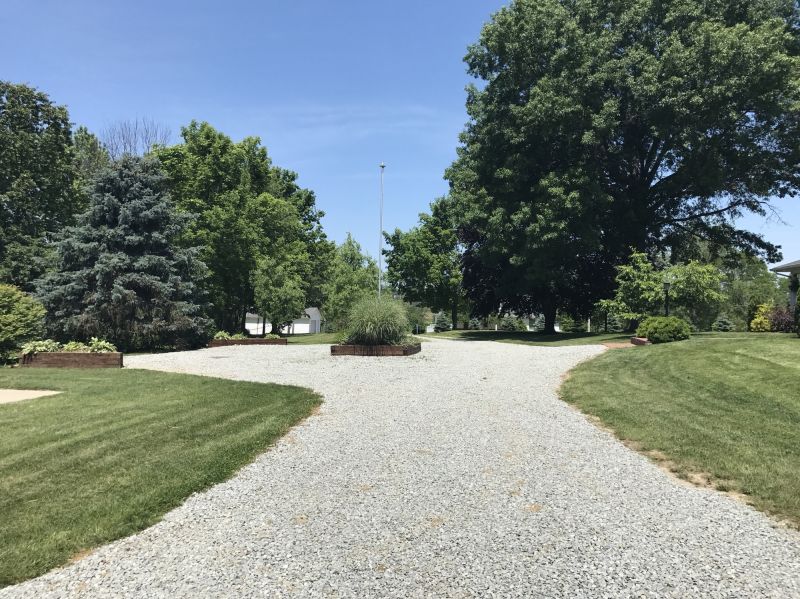Top Products For Driveway Enlargements To Maximize Space
Explore the leading solutions designed to expand your driveway efficiently and enhance your property's curb appeal.
 Expanding a driveway can significantly enhance the functionality and curb appeal of a property, providing more space for parking, turning around, or accommodating larger vehicles. When considering driveway enlargements, selecting the right products is essential to ensure durability, ease of installation, and suitability for the specific surface and environment. Various options are available, ranging from simple overlays to more complex structural additions, each designed to meet different needs and preferences.
Expanding a driveway can significantly enhance the functionality and curb appeal of a property, providing more space for parking, turning around, or accommodating larger vehicles. When considering driveway enlargements, selecting the right products is essential to ensure durability, ease of installation, and suitability for the specific surface and environment. Various options are available, ranging from simple overlays to more complex structural additions, each designed to meet different needs and preferences.
Types of Products For Driveway Enlargements
Concrete Paving Slabs
Interlocking or flat concrete slabs designed for durable driveway surfaces.
Asphalt Overlays
Thin asphalt layers that can be applied over existing surfaces for quick expansion.
Interlocking Pavers
Modular pavers that can be arranged in various patterns to extend and customize driveways.
Concrete Blocks
Stackable concrete blocks used for creating raised or expanded driveway sections.
Gravel Beds
Layered gravel systems that provide a stable base for driveway extensions.
Geogrids and Stabilizing Fabrics
Reinforcement materials that improve ground stability and prevent shifting.
Driveway Edging Borders
Decorative and functional borders to define and contain enlarged driveway areas.
Sealants and Surface Coatings
Protective coatings that enhance durability and appearance of expanded surfaces.
Drainage Channels
Installed to facilitate water runoff and prevent pooling in enlarged areas.
Stamped Concrete
Decorative concrete options that mimic stone or brick for aesthetic appeal.
Permeable Paving Systems
Materials allowing water infiltration, reducing runoff and pooling.
Retaining Wall Blocks
Blocks used to create elevated or terraced driveway sections.
Popular Choices
A flexible and customizable option that is trending for driveway expansions.
Widely used for their durability and variety of styles.
Common for quick and effective driveway extensions.
Preferred for cost-effective and permeable driveway bases.
Chosen for its decorative appeal and versatility.
Growing in popularity due to water management benefits.
Popular for defining and enhancing expanded driveway areas.
Essential in trending driveway projects for water control.
Favored for creating durable and customizable extensions.
One common approach involves the use of surface overlays, which can be applied directly over existing concrete or asphalt. These overlays can be made from materials such as concrete, asphalt, or polymer-modified compounds, offering a quick and cost-effective way to increase driveway size without extensive demolition. For more substantial enlargements, modular paving systems, including interlocking pavers or concrete slabs, provide versatility and aesthetic options, allowing for customized layouts and patterns.
In addition to surface materials, underpinning and reinforcement products such as geogrids or stabilizing fabrics can enhance the structural integrity of expanded areas, especially on uneven or soft ground. Proper drainage solutions, including channel drains and gravel beds, are also vital to prevent water accumulation and ensure longevity. When planning a driveway extension, it is important to consider local climate conditions, soil stability, and existing driveway materials to select compatible products that will perform well over time.
Overall, the selection of products for driveway enlargements should prioritize durability, compatibility with existing surfaces, and ease of installation. Consulting with professionals or experienced suppliers can help identify the most suitable options for your specific project, ensuring a seamless and durable expansion that meets your needs.
Key Buying Considerations
- Compatibility with existing driveway surface to ensure seamless integration.
- Durability and load-bearing capacity suitable for vehicle traffic.
- Ease of installation or professional installation options.
- Material maintenance requirements over time.
- Aesthetic options and how they complement your property’s style.
- Drainage and water runoff solutions to prevent pooling and erosion.
- Climate suitability, especially in areas with freeze-thaw cycles.
- Cost considerations including material and installation expenses.
- Availability of replacement parts or modules for future repairs.
- Environmental factors that may affect material longevity.
- Surface texture for safety and slip resistance.
- Environmental impact, if relevant, of material choice.
- Warranty or guarantee offered by suppliers or manufacturers.
- Local building codes and regulations related to driveway extensions.
- Potential impact on property value and curb appeal.
